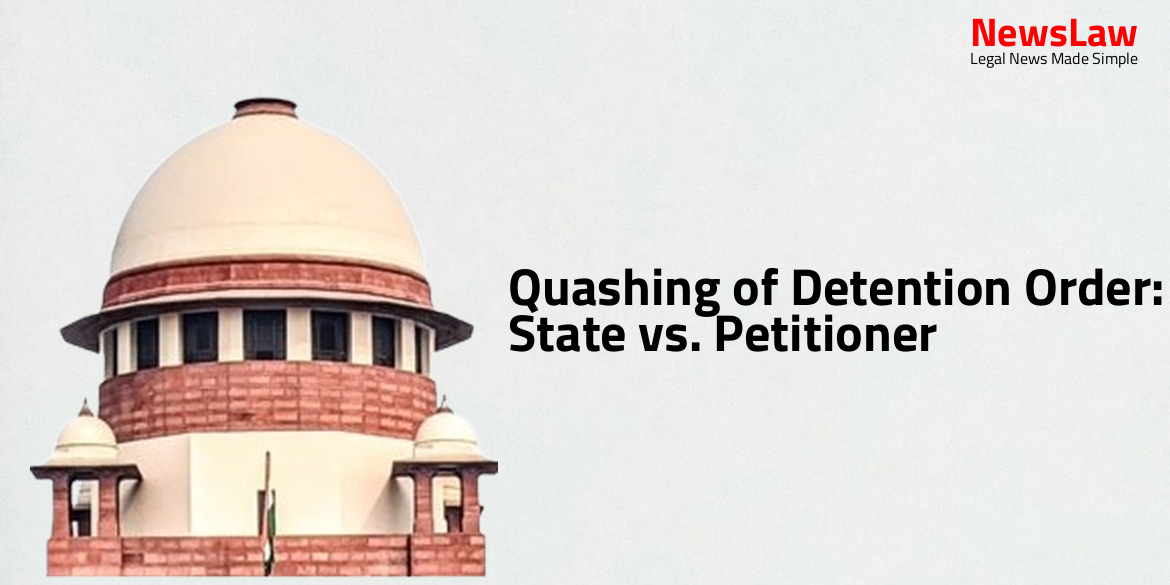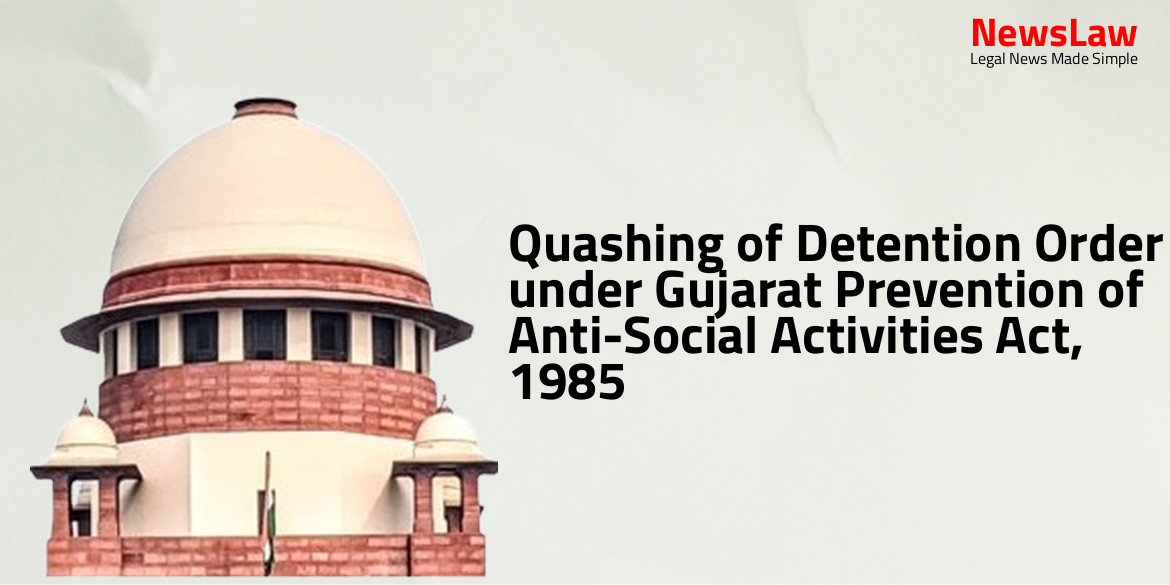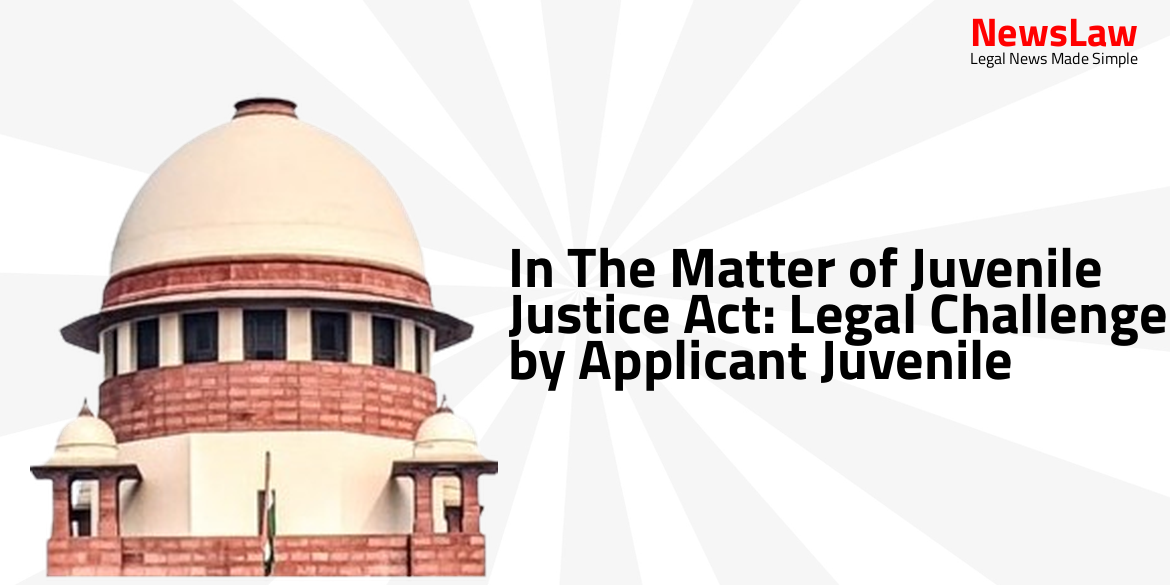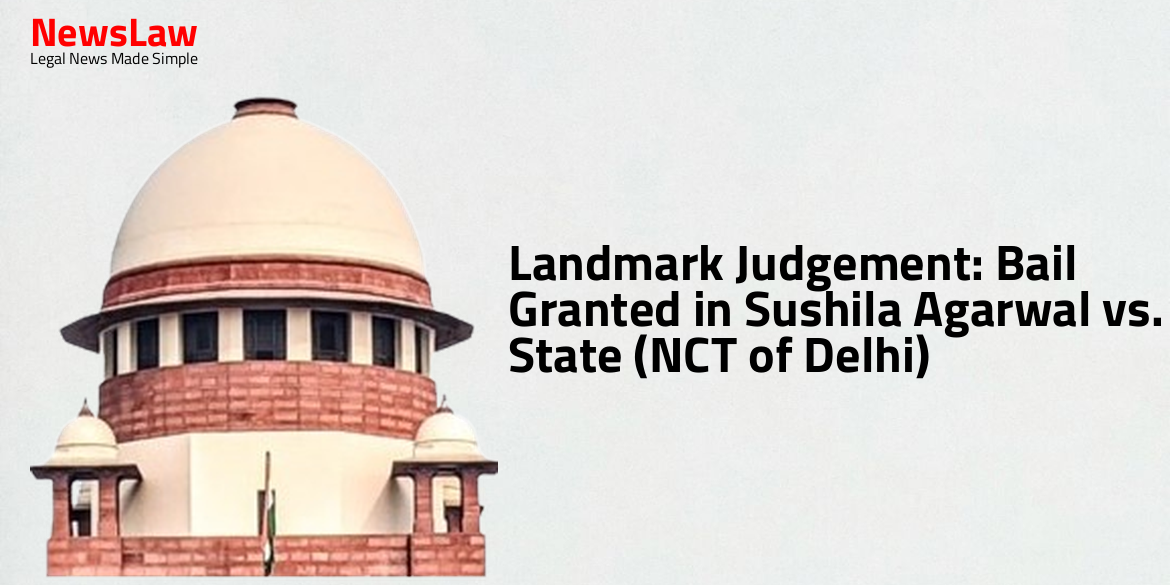In a significant judgment, the Gujarat High Court ruled on the quashing of a detention order in the case of State vs. Petitioner. The Court’s decision highlights the critical importance of protecting personal liberty and ensuring that preventive detention is only resorted to when supported by substantial evidence. This case sheds light on the careful considerations required in matters regarding public order and individual freedom.
Arguments
- The impugned order of detention is being challenged by the learned advocate for the petitioner – detenue.
- The detaining authority issued the order based solely on the registration of four FIRs for offenses under Sections 379 and 114 of the Indian Penal Code.
- Argues that this ground alone does not bring the case of the petitioner within the purview of the definition under Section 2(c) of the Act.
- The alleged illegal activities do not have any nexus with the maintenance of public order and can be categorized as a breach of law and order at most.
- The detaining authority has not provided any relevant and cogent material other than witness statements and FIRs to show that the detenue’s activities constitute a breach of public order.
- The activities of the petitioner – detenue in criminal cases have not been shown to have disrupted the social fabric of society or threatened the normal routine life of the people at large.
- The detaining authority did not consider that the petitioner – detenue had been granted bail in all the offenses for which they were detained.
- The detaining authority claims to have found sufficient evidence during the investigation to justify the detention under Section 2(c) of the Act.
- The detaining authority’s decision to detain the petitioner – detenue is supported by the State’s Advocate, who argues that the order is based on valid reasons and should be upheld by the Court.
Analysis
- The freedom of human beings is considered supreme and should not be restricted unless absolutely necessary.
- Detention orders must be in accordance with Articles 21 and 22 of the Constitution of India.
- Preventive detention should be used to prevent subversion of public order, not for maintenance of law and order under normal circumstances.
- Detention under preventive laws should be a last resort and not the primary remedy.
- Offences under specific laws should be dealt with using those laws instead of resorting to preventive detention.
- There are three concentric circles to consider – law and order, public order, and security of the State.
- Acts may affect law and order, public order, or security of the State to varying degrees.
- The case in question shows a lack of proper consideration and application of relevant circumstances by the detaining authority.
- The offences alleged in the FIRs do not impact public order as required under the Act.
- Normal criminal laws are sufficient to address the situation in this case.
- Preventive detention should not be used as a means of keeping a person in perpetual custody without trial.
- Preventive detention is typically for a limited duration and should not replace the normal investigative functions of authorities.
- Detaining a person without trial through preventive detention is aimed at preventing future offences.
- A person can only be considered a threat to society if there is material evidence to prove that they pose a menace disturbing public order.
- The disturbance caused by the person must be significant enough to jeopardize the functioning of the entire social apparatus.
- Without substantial evidence of the individual being a threat to the society, they cannot be classified under Section 2(c) of the Act.
- Disturbance to ‘public order’ is different from disturbance to ‘law and order’
- Personal liberty is a fundamental right guaranteed under the Constitution
- Powers of preventive detention are exceptional and need to be exercised with caution
- Every act of assault or injury to specific persons does not lead to public disorder
- Detention should not be a substitute for ordinary law and investigation
- Difference between ‘public order’ and ‘law and order’ is crucial in determining detention
- Simplicitor registration of FIR/s does not have a nexus with the breach of maintenance of public order.
- Authority cannot invoke the power under Section 3(1) of the Act based on FIR/s alone.
- Personal liberty protected under Article 21 is of high constitutional value.
- Detaining authority must show that detention follows legal procedures.
- Article 22 is an exception to Article 21 and applies only in rare cases.
Decision
- Petitioner-detainee to be released immediately if not required in any other case
- The rule is made absolute to the above extent
- The petition is allowed
- The detention order dated 22.01.2024 is quashed and set aside
- Direct service permitted
Case Title: SANJAYKUMAR RAMLAL ROT. Vs. THE COMMISSIONER OF POLICE
Case Number: R/SCA/5238/2024



